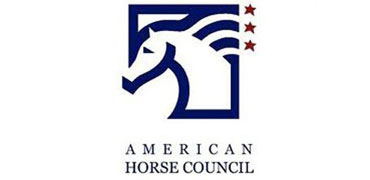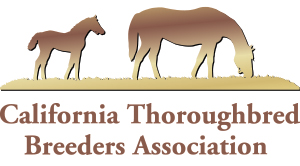 From AHC WASHINGTON, D.C. (Apr. 18, 2013) — On April 17, the “Gang of Eight” a bipartisan group of senators, including Senators Schumer (D-NY), McCain (R-AZ), Durbin (D-IL), Graham (R-SC), Menendez (D-NJ), Rubio (R-FL), Bennet (D-CO), and Flake (R-AZ), introduced the Border Security, Economic Opportunity, and Immigration Modernization Act of 2013. The bill would increase border security, provide a path for unauthorized immigrants to remain in the country and eventually apply for citizenship, implement an employment verification system, and improve current and create new temporary guest worker programs. If comprehensive immigration is debated by Congress in the coming months this bill will likely be the basis for reform.
From AHC WASHINGTON, D.C. (Apr. 18, 2013) — On April 17, the “Gang of Eight” a bipartisan group of senators, including Senators Schumer (D-NY), McCain (R-AZ), Durbin (D-IL), Graham (R-SC), Menendez (D-NJ), Rubio (R-FL), Bennet (D-CO), and Flake (R-AZ), introduced the Border Security, Economic Opportunity, and Immigration Modernization Act of 2013. The bill would increase border security, provide a path for unauthorized immigrants to remain in the country and eventually apply for citizenship, implement an employment verification system, and improve current and create new temporary guest worker programs. If comprehensive immigration is debated by Congress in the coming months this bill will likely be the basis for reform.
Comprehensive immigration reform has been a priority of the horse industry for many years. The difficulty horse farms, horse shows, trainers and others have had recruiting American workers has forced many to rely on foreign workers and utilize both the H-2B and H-2A temporary foreign worker programs to meet their labor needs. However, the current system is not reliable and is extremely burdensome to use. This bill would overhaul the U.S. immigration system and has the potential to finally fix some of the immigration issues facing the horse industry and all of American agricultural.
This bill is very long and complex and would make many changes concerning border security and all aspects of our current immigration system. The horse industry is primarily concerned with changes to guest worker programs and a path to legal status for undocumented workers.
Legal Status — The bill would allow undocumented aliens to apply for registered provisional immigrant (RPI) status if they were here by December 31, 2011, have not been convicted of any serious crime, pay back taxes, and pay a fine. They can then stay and work in the country. After ten years they could apply for permanent residence (Green Card), and eventually citizenship, if they pay additional fines and fulfill additional requirements.
Undocumented farm workers including those on horse farms would be eligible for a separate agricultural legalization program, referred to as a “blue card,” that includes an accelerated 5 year path to legal permanent resident status if they continue to work in the agricultural sector.
These changes would allow any undocumented individuals working in any capacity or segment of the horse industry to stay and continue working if they can meet the requirements in the bill.
Temporary Worker Programs — The bill would replace the current H-2A program with a new, temporary agricultural foreign worker program that should be easier to use than the current H-2A program. The new program would be administered by the Department of Agriculture (USDA) as opposed to the Department of Labor (DOL), and provide two work visa options :1) a portable, at will employment based visa; and 2) a contract based visa program. Visas will be good for up to 3 years and could be renewed one time. Currently, H-2A visas are only good for 10 months. To participate in the program employers must register with USDA and will have to provide housing or housing stipend, pay transportation cost, pay a predetermined wage and take actions to recruit and ensure U.S. workers are not adversely affected, similar to the current H-2A program.
However, the proposed program should be much less burdensome for employers to use than the current H-2A program.
The bill also includes some reforms to the H-2B temporary, non-agricultural worker program such as an improved wage methodology. It also would exempt returning workers from counting against the 66,000 annual visa cap through 2018.
Additionally, the bill would create a completely new low-skill guest worker program (W- Visa). This program would grant low skill foreign workers a 3-year W-visa to work for American employers in industries that have difficulty finding American workers. The program would have an annual cap of 20,000 visas for the first year; 35,000 the second year; 55,000 the third year and 75,000 the fourth year after which the cap will be calculated according to a formula that takes into account several factors, like new job openings in the economy and the number of unemployed US workers. Employers would have to register for this program, demonstrate a need and take actions to recruit and ensure U.S. workers are not adversely affected similar to other guest worker programs. Non-agricultural horse industry employers like trainers, race tracks, and horse shows should be eligible for this program.
Employment Verification — The bill would also require all employers to use the E-Verify system over a 5-year phase-in period to make sure all their workers are authorized to work in the U.S. Employers with more than 5,000 employees will be phased in within 2 years; those with more than 500 employees 3 years; all others, including agricultural employers, will be phased in within 4 years.
This bill is very complex and is over 800 pages long. The AHC is in the beginning stages of analyzing the bill and its possible impact on the industry. However, the bill has the potential to make the guest worker programs the horse industry relies on more reliable, less burdensome and less costly. Some of the reforms included in this bill could fix many of the labor issue the industry has been dealing with for many years.
The AHC will be watching this process closely and working to make sure any final bill deals with the needs of horse farms, horse shows, trainers and the entire horse industry.

